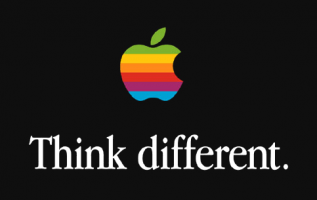Apple's iOS, where "i" is for irony


In my recent interview with Boxtone's Chief Marketing Officer and Chief Product Officer, Brian Reed, I observed that while Enterprise users embrace Apple products in BYOD programs, Apple has no interest in the Enterprise. However, they do include Cisco VPN software with their iOS devices. This fact alone makes their whole "Consumer Only" shtick a little, well, ironic. The irony is that Apple provides fantastic devices with an operating system that is extendable, customizable and ready for Enterprise work but yet shuns the notion that Enterprise users are also consumers.
I find it all a bit ironic.
And weird.
The Problem
The primary issue with this kind of attitude is that users, Enterprise and otherwise, will have to rely on App developers to create the Apps necessary for Enterprise work. And, the word Enterprise here means "business." When I speak of Enterprise, I actually refer to any user who uses his Apple iOS-based device for business use. Some business uses are connecting to SharePoint sites in the corporate network, using SSH to connect to and to work with *nix systems or using corporate Exchange mail (ironically, also a built-in feature in iOS) to write email to other corporate users.
The problem is that, instead of relying on Apple to update its iOS to accomodate new features and additional bug fixes, we have to hope that third-party App developers will incorporate these same features and bug fixes in a timely manner. For certain capabilities such as VPN access, two-factor authentication, file sharing, mail and a few other key features, I don't want to rely on anyone but Apple.
I'm all for independent developers and their ability to provide great Apps at reasonable prices to us, the Enterprise consumers, but there are some things better left to the operating system and to those who designed it.
Of course, Apple's inclusion of these features does not preclude third parties from writing and selling competing Apps. Developers who think that they can do it better can certainly give it their best efforts.
For example, I spoke with John Hanay, Director of Product Management, Partnerpedia and Sam Liu, VP of Marketing, Partnerpedia last week and we covered some of the same ground about Apple and the Enterprise and the odd disconnect between what Enterprise consumers want and what Apple delivers--at least in words.
The Disconnect
For those of us who use our iOS-based devices on the corporate network, we realize that they can be quite handy. I can open a presentation on my iPad, walk over to a colleague's cubicle and explain, face-to-face to her, what I want to do. It's very simple. If Apple were Enterprise-oriented, I'd be able to share that presentation in real time with my colleague without having to leave my seat.
Sure, I know that there are Whiteboard Apps available but what I'm talking about is the following:
I have a presentation, document or some file I want to edit in real-time with another person or group of persons in sort of a creative "think tank" session. I'd like to see a built-in browse utility for other iOS-based devices to invite to the collaboration "room."
During the collaboration, each invitee can view, edit, move and manipulate the file as if it were on the invitee's local device. That's just one example. You might have others in mind that you'd like to see. I think having certain Apps native to iOS is essential to being able to do more than playing Angry Birds or playing Words with Friends.
Obviously, Apple doesn't see the disconnect because of its success. But, if the gadgets we buy from them are going to be used in business, we need that support. I understand that if consumers use a product in a way that's different than its original design, the manufacturer isn't responsible but seriously, business use of iOS-based devices isn't far-fetched or off the charts. It's reasonable, especially given that Apple provides that aforementioned VPN and Exchange connectivity.
The Solution
Of course, the obvious resolution to this problem is for Apple to bend to my will and create a business version of its iPad and possibly its iPhone.
What's wrong with producing and supporting two differently oriented devices?
Nothing. Absolutely nothing.
Instead of producing and supporting some stupid small iPad, a business version makes way more sense. But, that's my solution to the problem.
A business iPad would have a full suite of pre-installed Apps for business plus a Business App Store for Enterprise purchases. For example, if I, as a manager of a group, wanted to purchase 50 copies of QuickOffice for my department, I could and QuickOffice would be pushed to all 50 Business iPads. Yes, that does have the stank of MDM on it, doesn't it?
And, it should. That's part of the Business iPad model. Apple products can do so much.
So, my solution is for Apple to produce the Business iPad.
I think we should give it a name to help them make their decision to produce one that much easier. Here are my entries:
iPome
iCore
iBiz Pad
iTab
iSlate
Please, feel free to post your own. Be creative.
What do you think of a Business version of the iPad? Would you or your company buy it? What would you like to see as built-in features on it? Talk back and let me know.